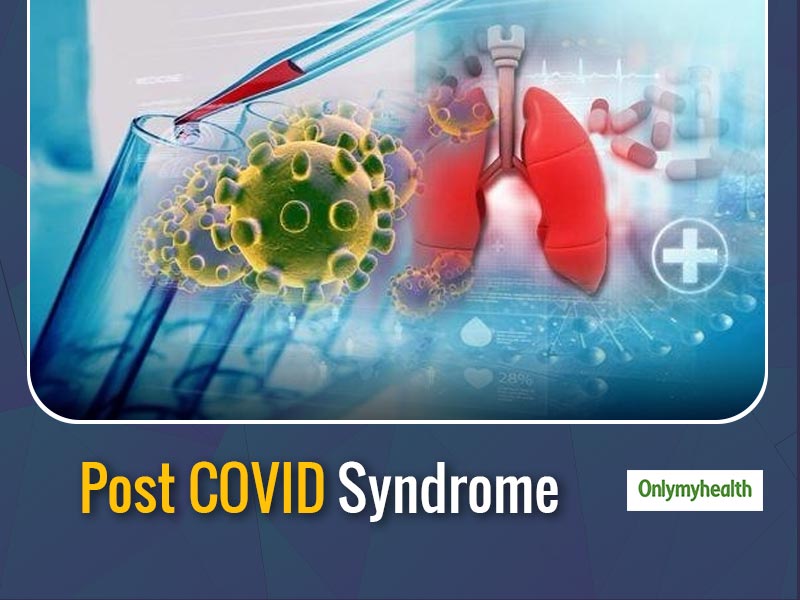
The effect of the ongoing pandemic has rippled through the whole healthcare ecosystem, and healthcare workers continue to battle on the frontlines to treat as many patients as possible. May patients with COVID19 needed intensive care, and with generous support and impeccable clinical acumen, patients have emerged victorious. However, those who have been critically ill, and those who were treated for prolonged periods in intensive care units may need a few more months to recover fully, despite completing treatment for COVID19.
Table of Content:-

Also Read: Antibodies May Not Stop Coronavirus Transmission In Children, Says Study
There is significant evidence that some people with relatively mild symptoms, who were treated at home, may also have a prolonged sickness, even after beating the infection. It is observed that the virus not only affects the Lungs but also has an impact on one’s Heart, Brain, the digestive system, and Kidneys amongst other organs. This new phenomenon that has emerged is termed as the ‘Post COVID-19 syndrome’. It is recognized that patients who have recovered from COVID-19 might experience:
- Abnormal heart rate
- Chronic fatigue
- Persistent diarrhoea
- Rapid weight loss and digestive issues
- Mild to severe inflammation in the brain
- Nausea
- Loss of appetite, taste and smell
- Reduced exercise tolerance
- Disturbed sleep patterns
- Muscle weakness
- Neuropsychiatric implications like Depression, Insomnia, etc.
HOW SOON, AND WHY DO THESE SYMPTOMS SHOW UP?
The symptoms, especially fatigue, maybe a continuation of the recovery process and some symptoms may be only noticed after the patient is discharged. In almost 80% of patients, fatigue post-illness stays for several weeks and gradually resolves. Low exercise tolerance, disturbance in sleep-wake cycles are noticed usually when the patient returns to confines of his home. The most difficult are the neuropsychiatric and depressive symptoms; it needs specialized training like that of a Clinical Psychologist to diagnose it.

HOW SOON CAN A PERSON START SEEKING POST COVID CARE?
It is essential to seek post COVID19 care right from the 1st follow up post-discharge, or usually around two weeks post-discharge. Then as per requirements, clinical support, physical rehabilitation and psychological support can be offered.
REHABILITATION PROGRAM TO TACKLE POST COVID SYNDROME
The post-COVID19 Syndrome must be tackled through clinical assessment, psychological intervention and comprehensive rehabilitative care. An expert panel of doctors, at a dedicated post-COVID19 OPD, must help clinically assess the patient. This is the first step towards helping the patient tackle the residual impact of the infection. Physical rehabilitation will play a crucial role in determining the effect on mobility, decreased/ increased exercise tolerance and muscle weakness. Also, psychological evaluation plays a significant role in addressing Post Traumatic Stress Disorder (PTSD) amongst those who have battled severe COVID19 and had a prolonged stay in the hospital. These areas of focus will help diagnose and treat the long and short term complications amongst COVID19 survivors.
VIDEO: COVID-19 Vaccine Update:
Also Read: Inflammation Is The Key Risk Factor For Coronavirus, Doctor Explains Different Aspects
HAVE PRE-EXISTING CONDITIONS? HERE’S HOW COVID IMPACTS YOU
Those with pre-existing conditions such as Diabetes, Hypertension, Obesity, etc. must be evaluated. It is noticed that due to the impact on ACE 2 receptors during COVID-19, the blood glucose levels are usually high. This is compounded by steroids, which the patient receives. Especially in people with diabetes, patients may need a short course of Insulin before returning to tablets; dosage may also need alterations. Similarly, Hypertensive patients may need altering of their medication regime, post-COVID-19 Tachycardia may need beta-blockers to be added to the routine medication. Likewise, patients with Chronic Lung Disease or Asthmatics may require an additional evaluation of the Pulmonary Function Test.
With inputs from Dr Rahul Pandit, Director-Critical Care, Fortis Hospital, Mulund
Read more articles on Other Diseases
How we keep this article up to date:
We work with experts and keep a close eye on the latest in health and wellness. Whenever there is a new research or helpful information, we update our articles with accurate and useful advice.
Current Version
